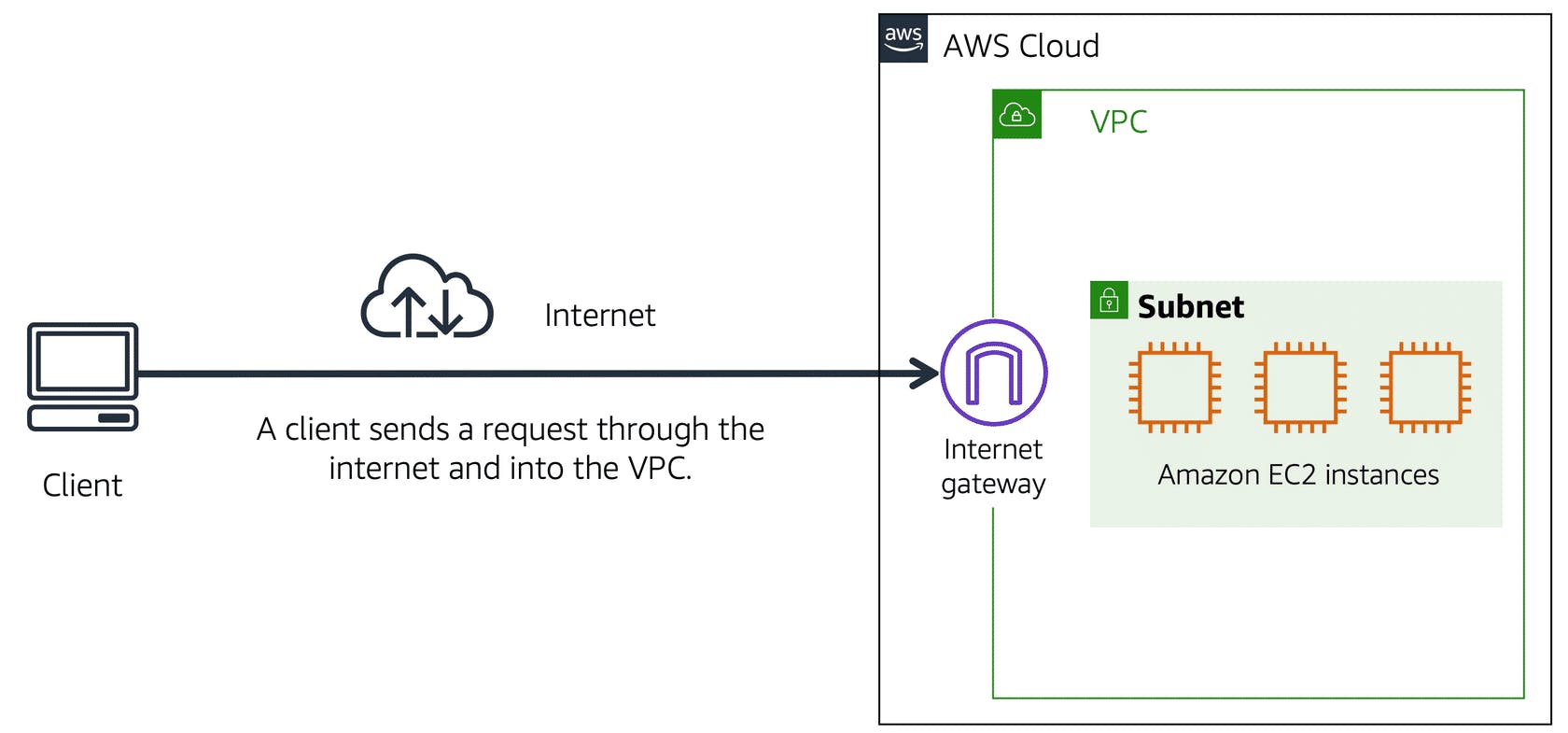What is Amazon VPC?
4 min read

The cloud offers unparalleled scalability and agility for businesses, but security remains a paramount concern. This is where Amazon Virtual Private Cloud (VPC) comes in.
Imagine a private, gated community within the vast AWS cloud. That's essentially what a VPC is. Amazon VPC allows you to logically isolate a network environment where you have complete control. Amazon VPC enables you to provision an isolated section of the AWS Cloud. In this isolated section, you can launch resources in a virtual network that you define. Think of it as your own virtual data center within the broader AWS infrastructure.
Why use a VPC?
Scalability: With Amazon VPC, you can scale your network infrastructure seamlessly to accommodate growing workloads and changing business requirements.
Enhanced Security: VPC keeps your resources isolated from the public internet and other VPCs. This isolation provides an extra layer of protection for your sensitive data and applications.
Customizable Network: In VPC you can design your virtual network. VPC allows you to define your own IP address range, create subnets, and implement security measures tailored to your specific needs.
Granular Control: With a VPC, you're the network architect. You decide how resources within your VPC communicate with each other, the internet, and even VPCs in other regions or accounts. This granular control allows you to optimize network traffic flow and ensure secure communication channels.
Key Features of Amazon VPC
1. Isolation:
Amazon VPC allows you to create multiple virtual networks, known as VPCs, which operate independently of each other. This enables you to isolate resources and environments, providing enhanced security and control.
2. Subnets:
Within a VPC, you can define multiple subnets, each residing in a different Availability Zone (AZ). Subnets enable you to segment your network and control traffic flow between resources. This helps in distributing workloads across multiple AZs for improved fault tolerance and high availability.
3. Internet Connectivity:
Amazon VPC provides options for internet connectivity. You can attach an Internet Gateway (IGW) to your VPC, allowing resources within the VPC to communicate with the internet and vice versa. Alternatively, you can utilize NAT Gateways or NAT instances for outbound internet access while maintaining inbound traffic restrictions.
4. VPN and Direct Connect:
Amazon VPC offers seamless integration with your on-premises network through VPN connections or AWS Direct Connect. This enables you to establish secure and private communication channels between your VPC and your data center, extending your network to the cloud.
5. Security:
Security is important in Amazon VPC. You can enforce network access control lists and security groups to regulate inbound and outbound traffic at the subnet and instance level. This allows you to create a layered security approach to protect your resources from unauthorized access.
6. Elastic IP Addresses:
Amazon VPC supports Elastic IP addresses (EIPs), which are static IP addresses that you can allocate to resources within your VPC. EIPs provide a consistent IP address for your applications and allow for seamless remapping to different instances as needed.
7. Peering Connections:
VPC peering enables you to establish private connectivity between VPCs within the same AWS region. This allows resources in different VPCs to communicate with each other using private IP addresses, facilitating resource sharing and collaboration across environments.
8. Endpoint Services:
Amazon VPC offers endpoint services that allow you to privately connect your VPC to AWS services like Amazon S3, DynamoDB, and others without crossing the public internet. This enhances security and reduces latency for accessing AWS services from within your VPC.
Internet Gateway in Amazon VPC

To allow public traffic from the internet to access your VPC, you attach an internet gateway to the VPC.
An internet gateway is a connection between a VPC and the internet.
You can think of an internet gateway as being similar to a doorway that customers use to enter the coffee shop. Without an internet gateway, no one can access the resources within your VPC.
Conclusion
Amazon VPC serves as the foundation for building secure, scalable, and resilient cloud architectures on AWS. By leveraging its features and capabilities, organizations can design and deploy sophisticated network infrastructures that meet their unique business needs. Whether you're hosting web applications, running analytics workloads, or managing databases in the cloud, Amazon VPC empowers you to architect robust and efficient networks that drive innovation and accelerate digital transformation. Amazon VPC is not just a networking service; it's a cornerstone of modern cloud computing, enabling businesses to harness the full potential of the AWS cloud while maintaining control, security, and performance across their infrastructure.
